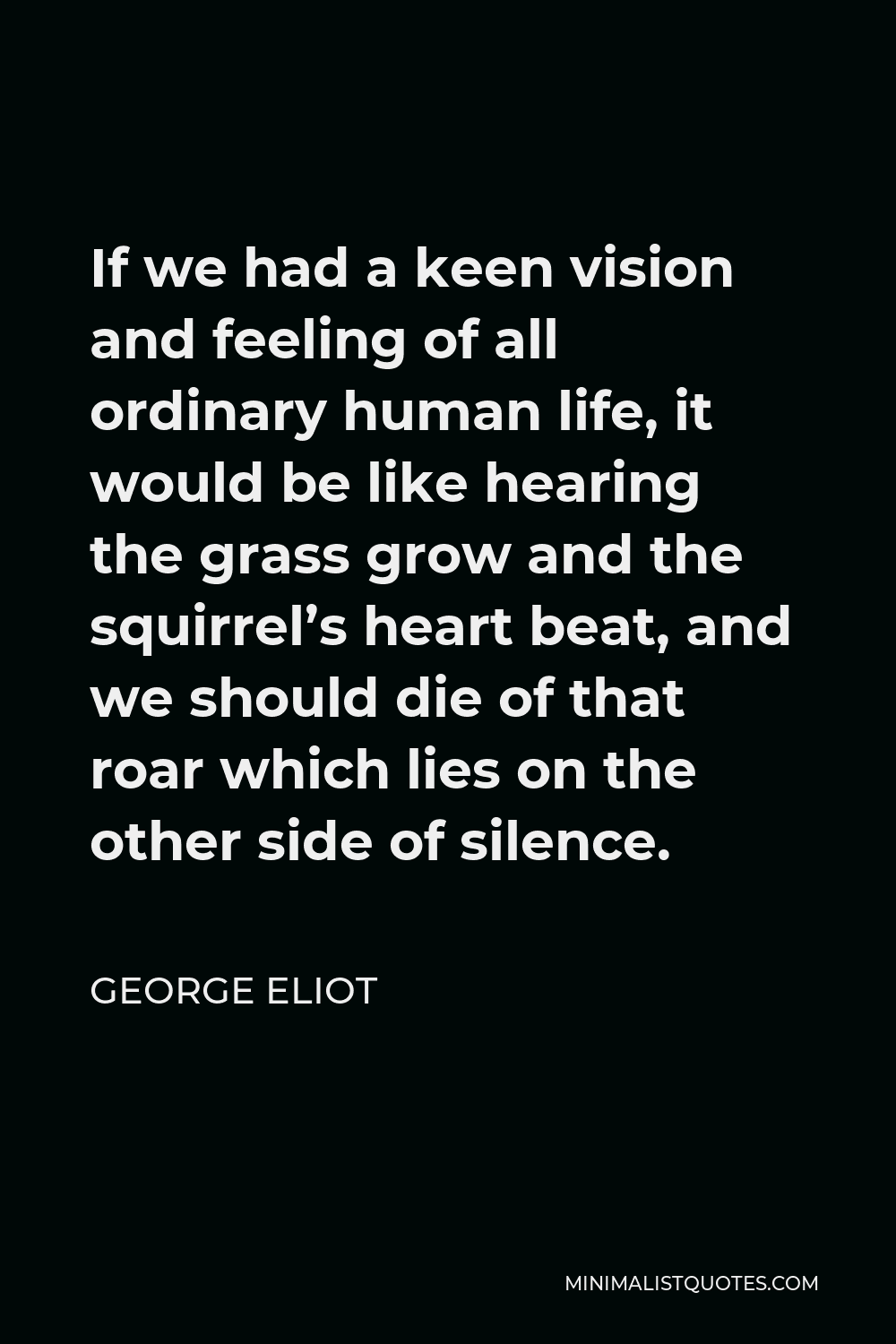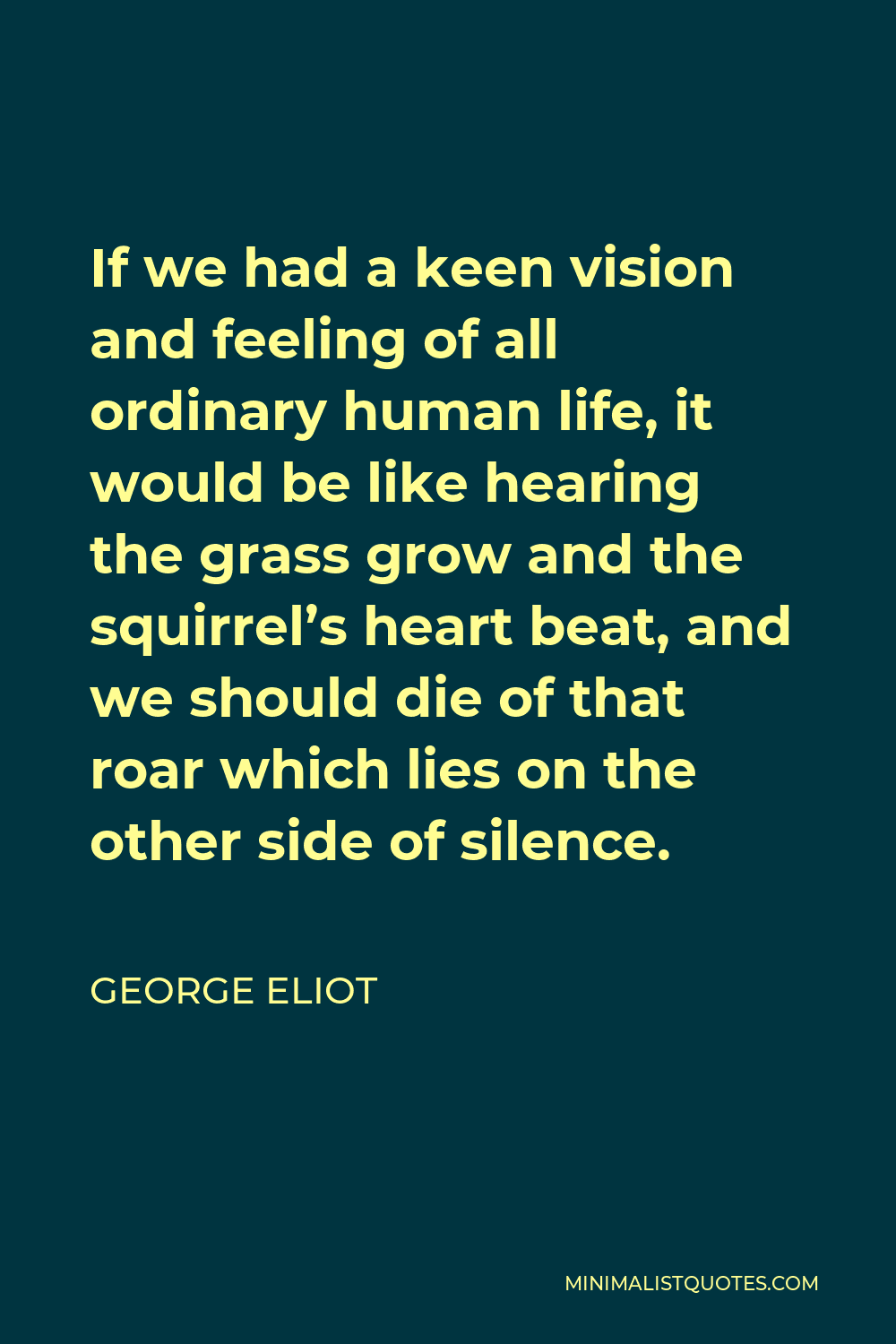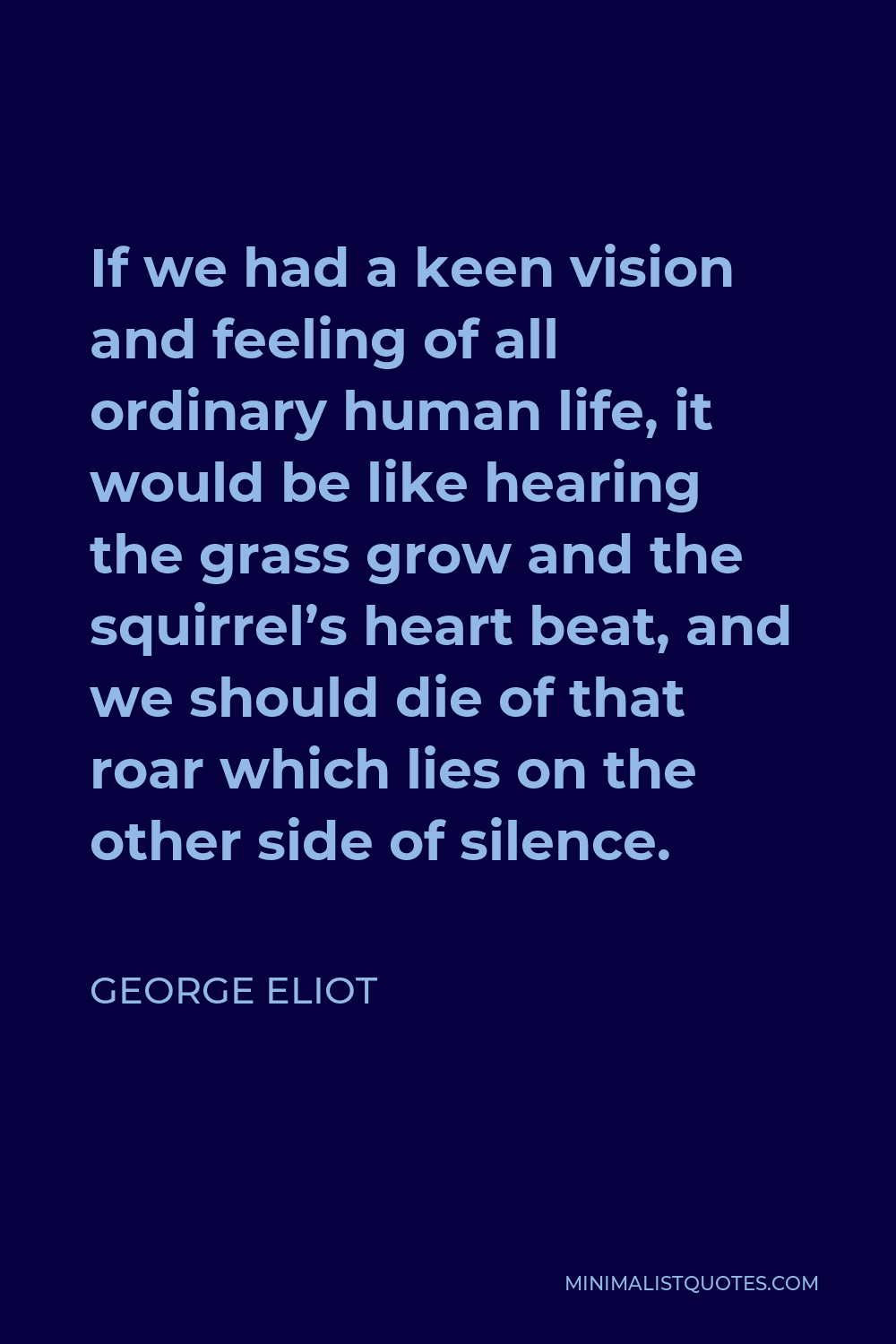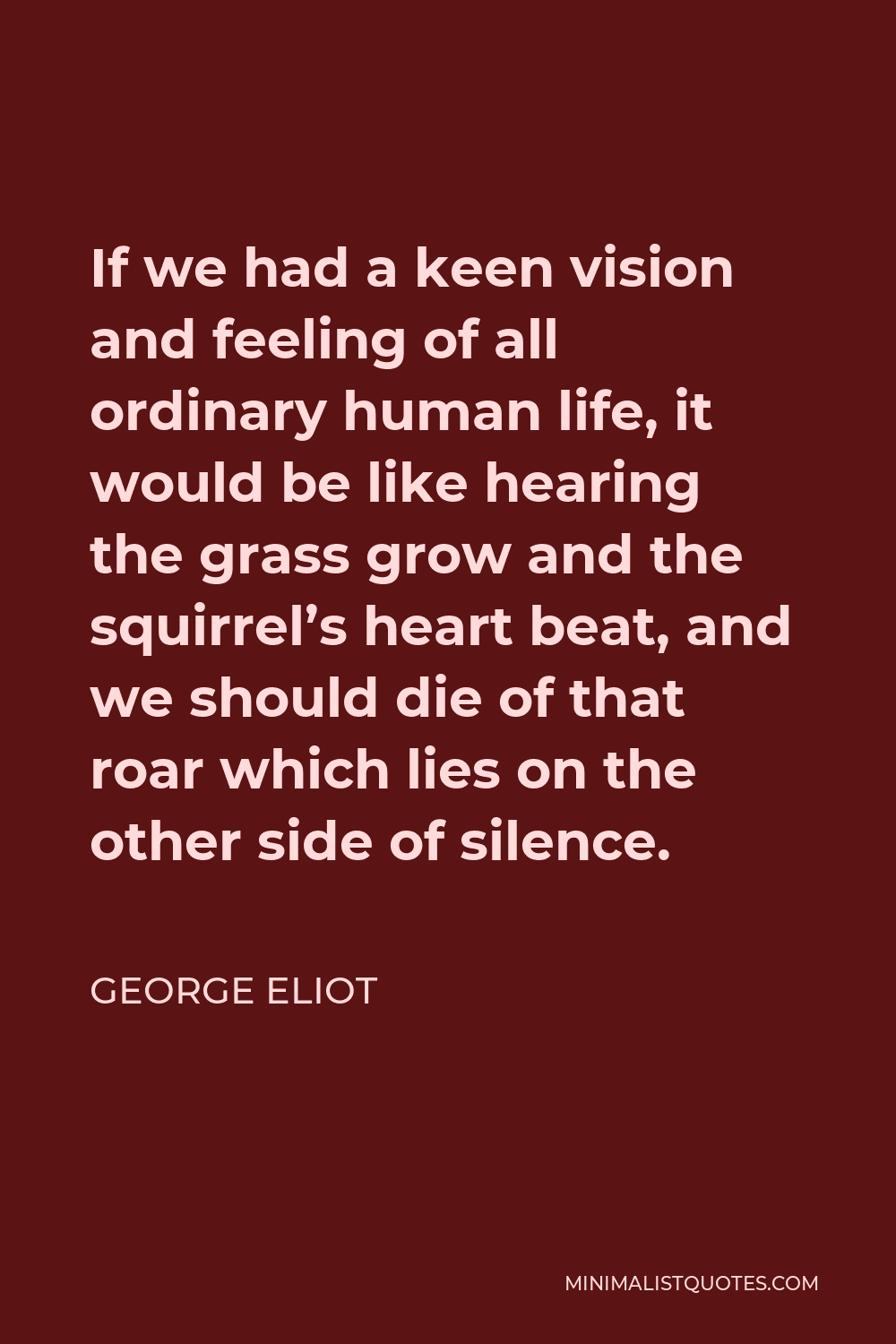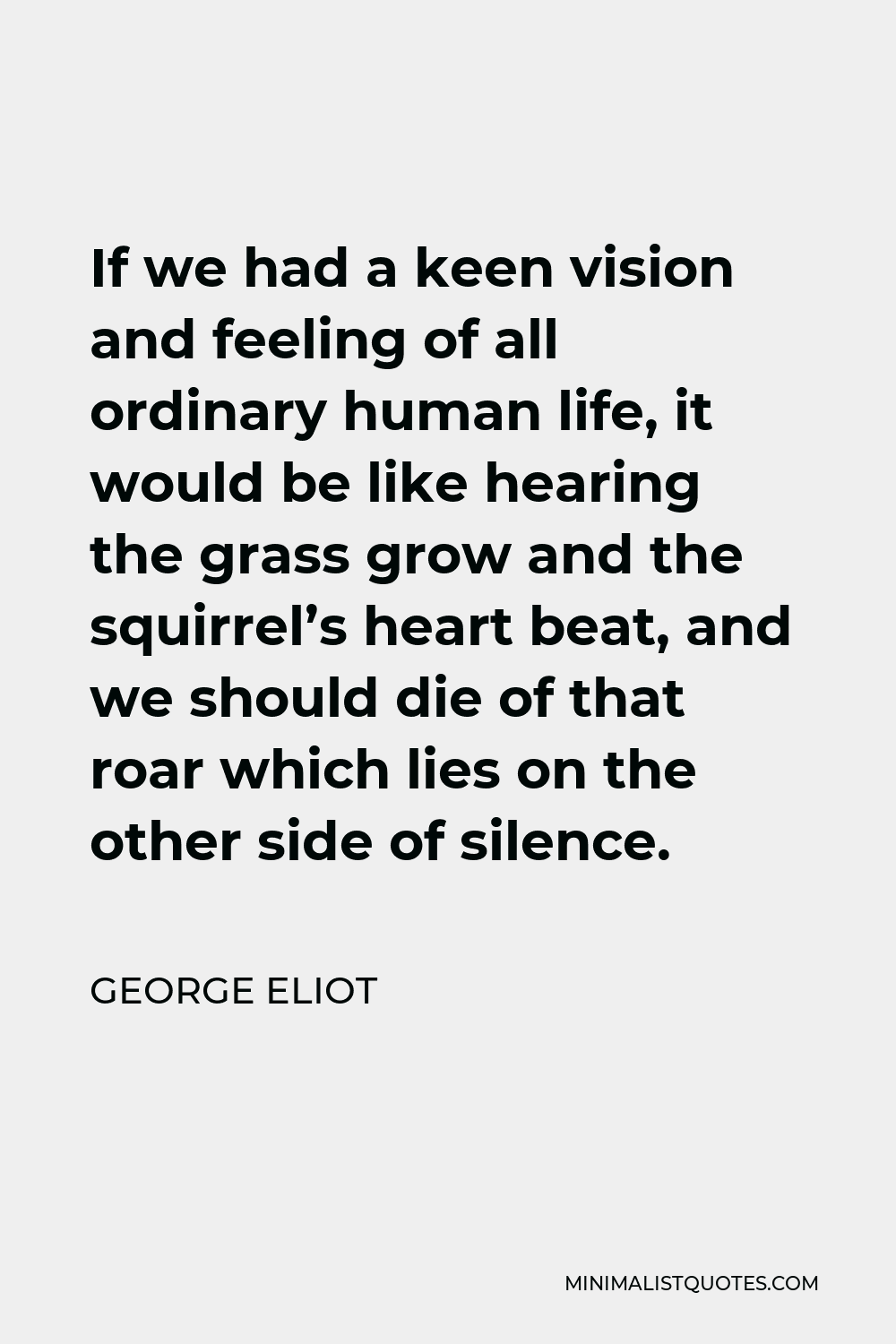What loneliness is more lonely than distrust?
GEORGE ELIOTIf we had a keen vision and feeling of all ordinary human life, it would be like hearing the grass grow and the squirrel’s heart beat, and we should die of that roar which lies on the other side of silence.
More George Eliot Quotes
-





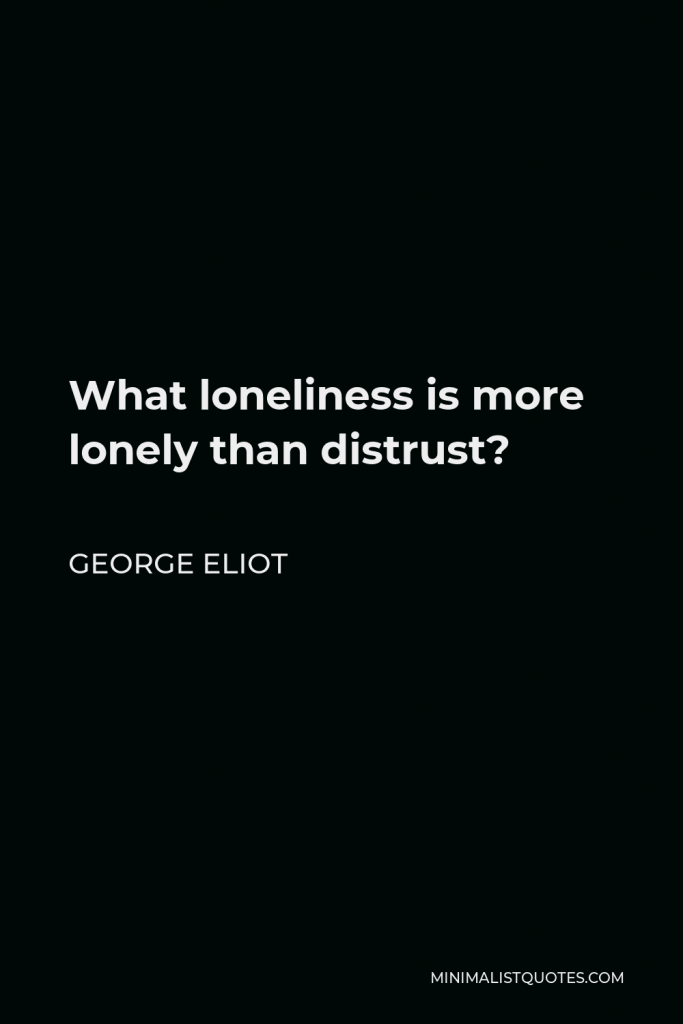

-





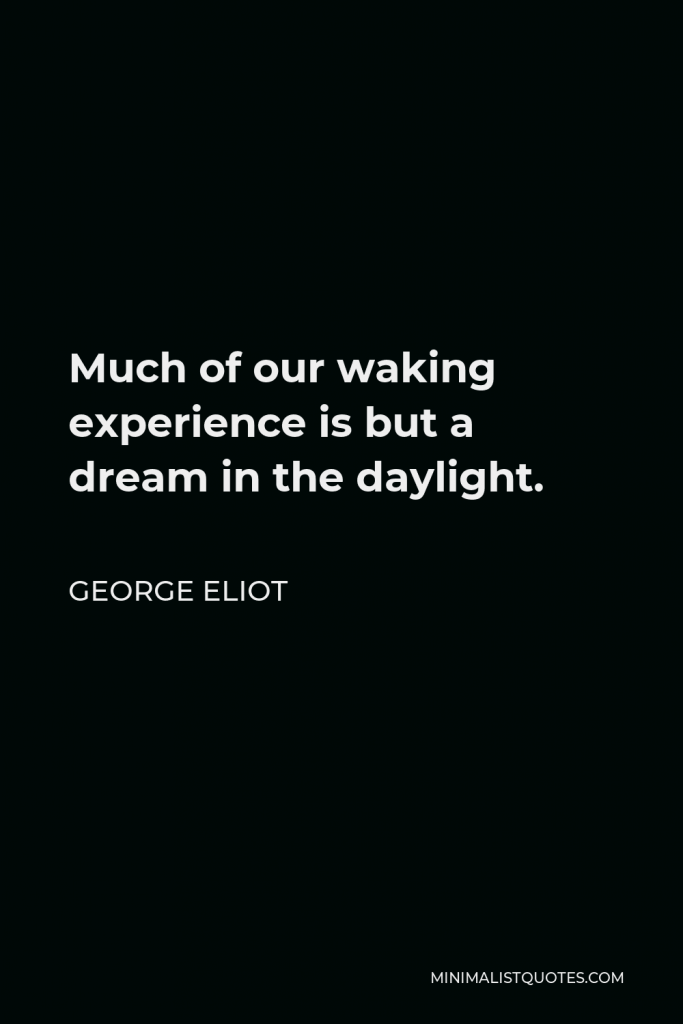

Much of our waking experience is but a dream in the daylight.
GEORGE ELIOT -





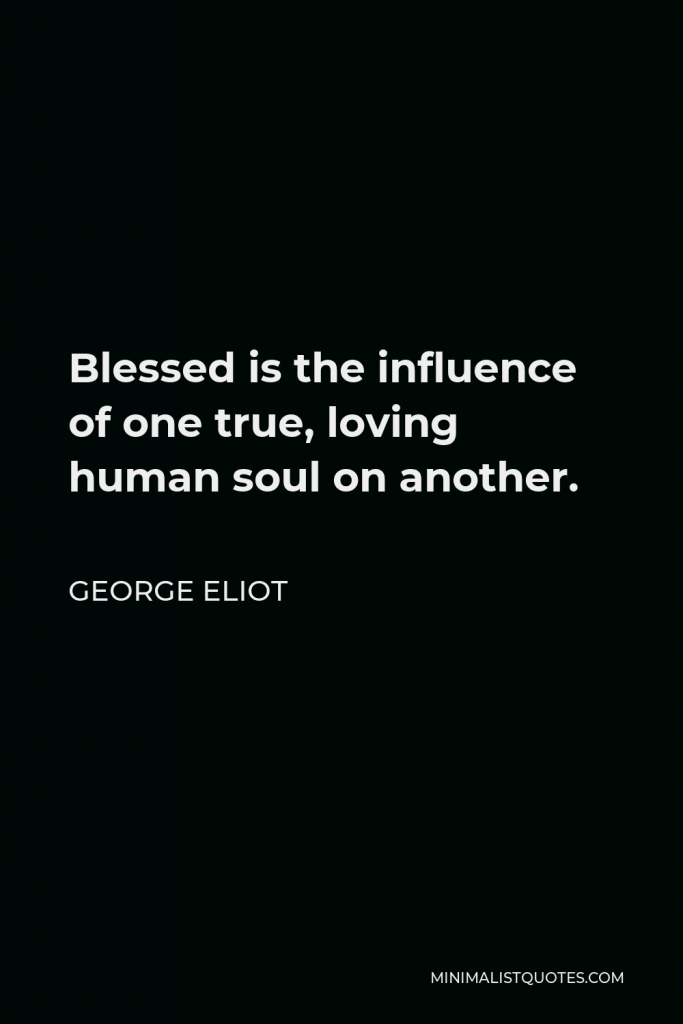

Blessed is the influence of one true, loving human soul on another.
GEORGE ELIOT -





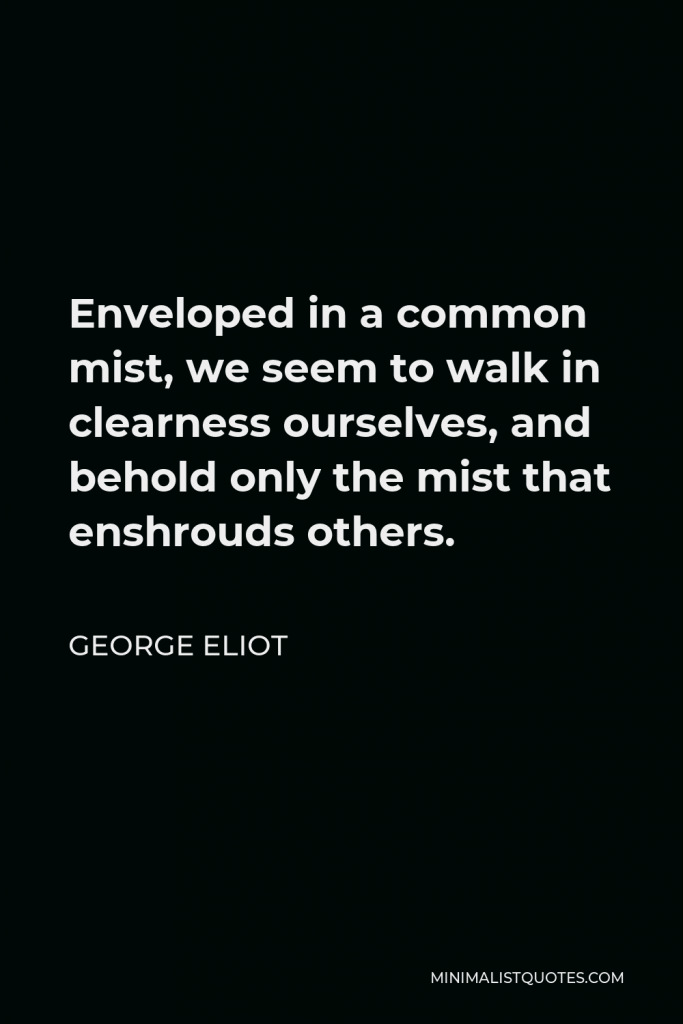

Enveloped in a common mist, we seem to walk in clearness ourselves, and behold only the mist that enshrouds others.
GEORGE ELIOT -





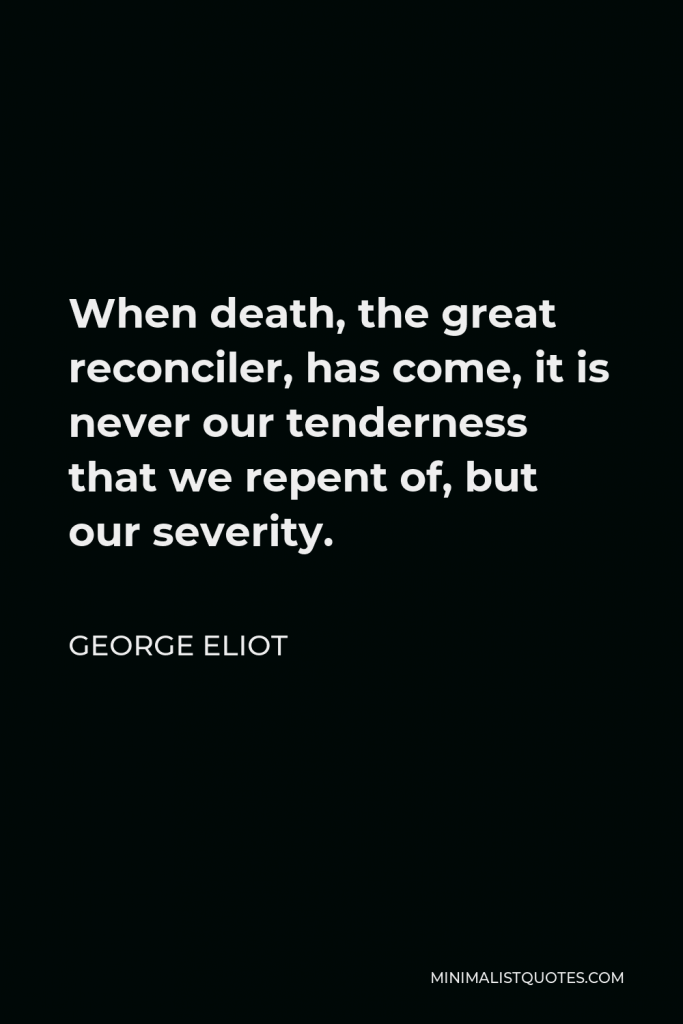

When death, the great reconciler, has come, it is never our tenderness that we repent of, but our severity.
GEORGE ELIOT -





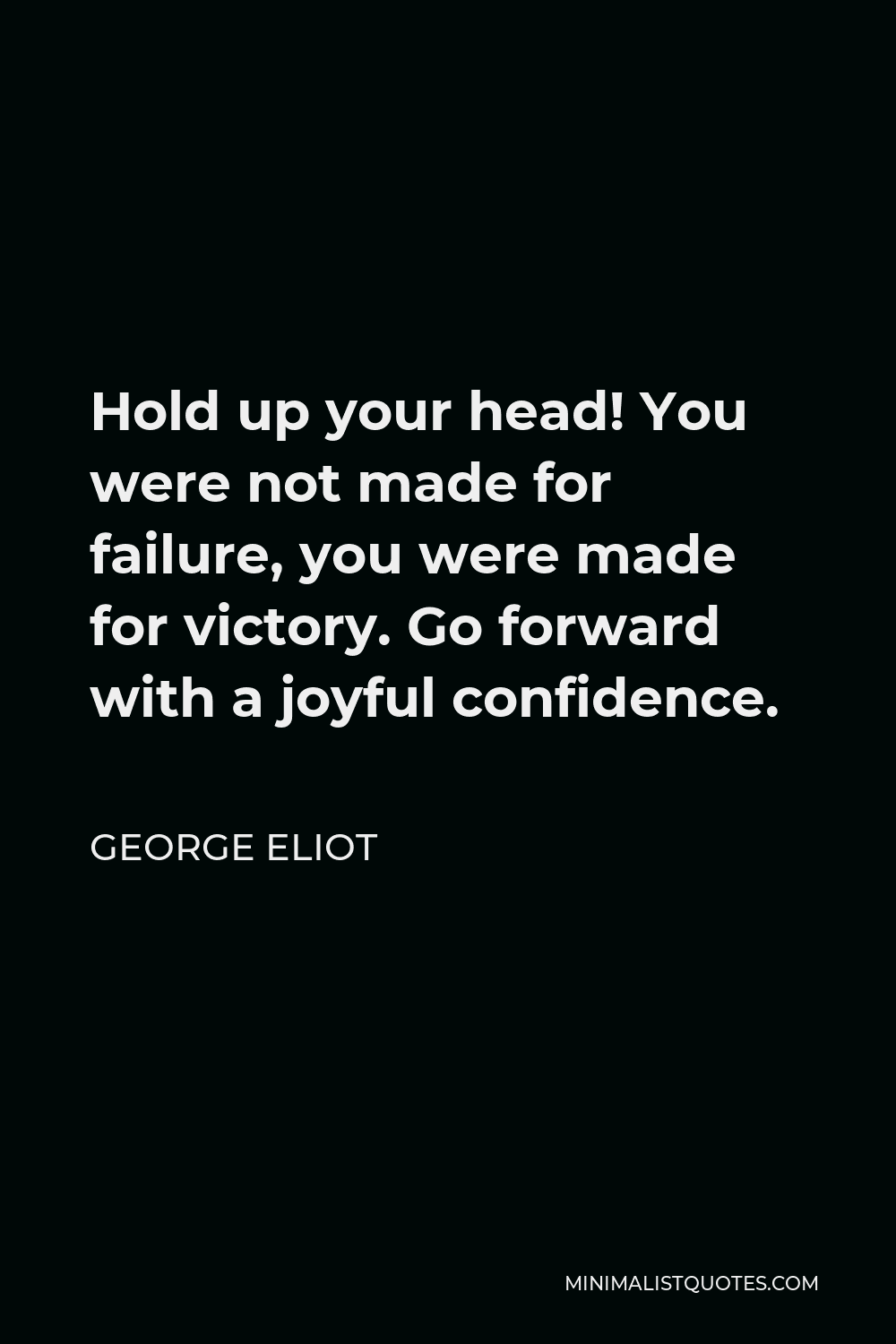
Hold up your head! You were not made for failure, you were made for victory. Go forward with a joyful confidence.
GEORGE ELIOT -





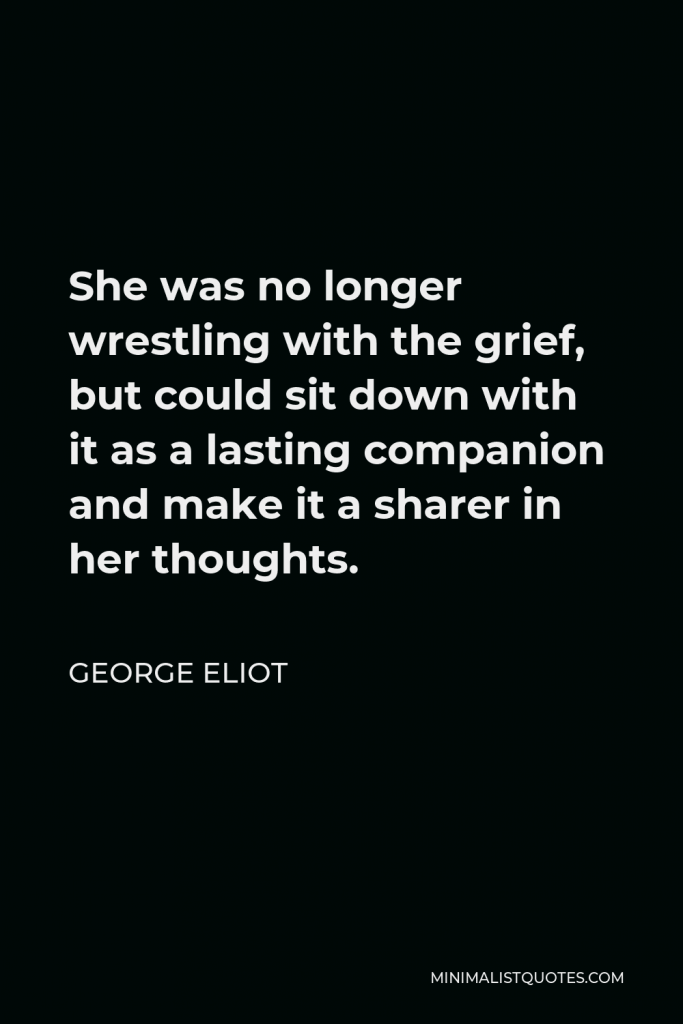

She was no longer wrestling with the grief, but could sit down with it as a lasting companion and make it a sharer in her thoughts.
GEORGE ELIOT -





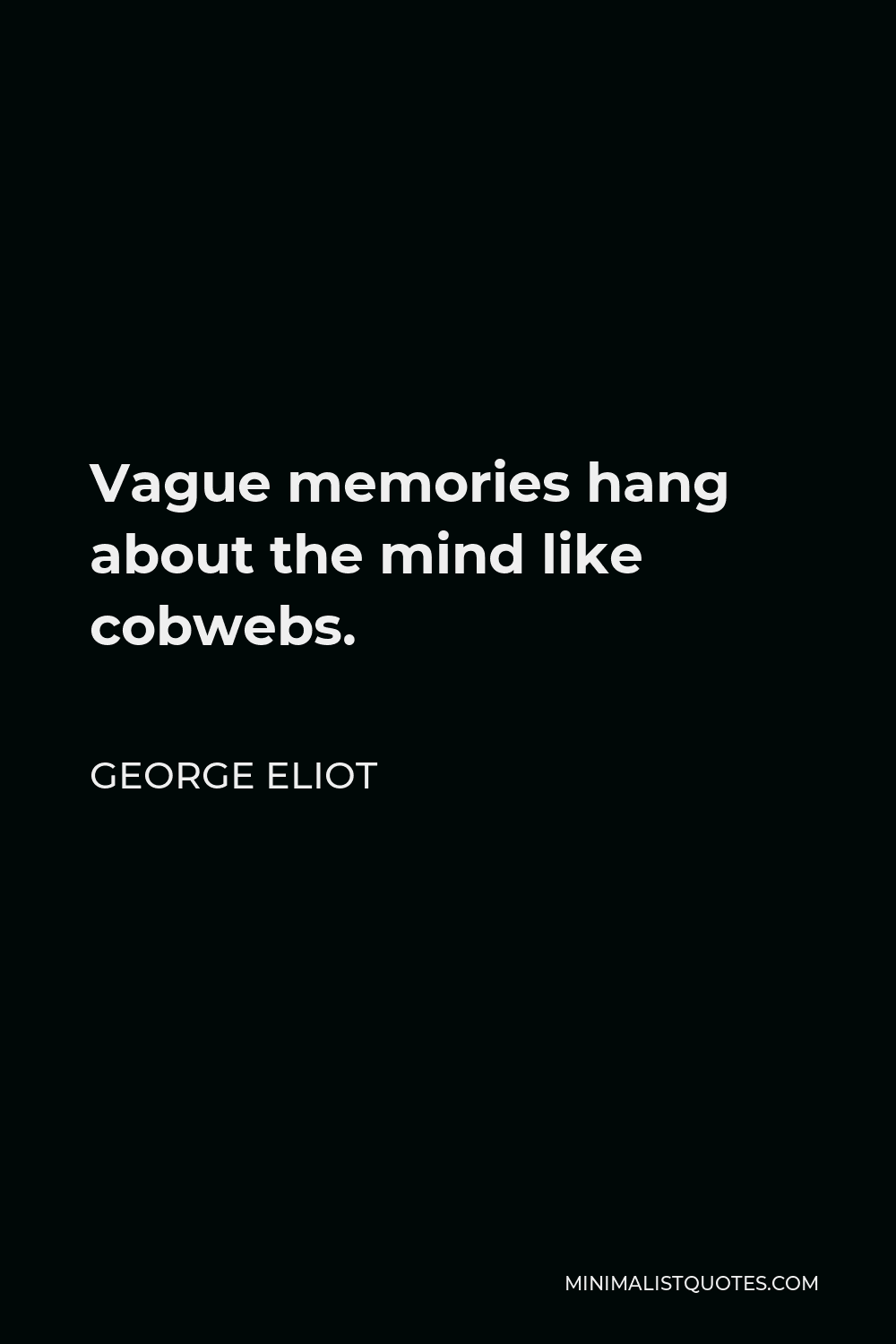
Vague memories hang about the mind like cobwebs.
GEORGE ELIOT -





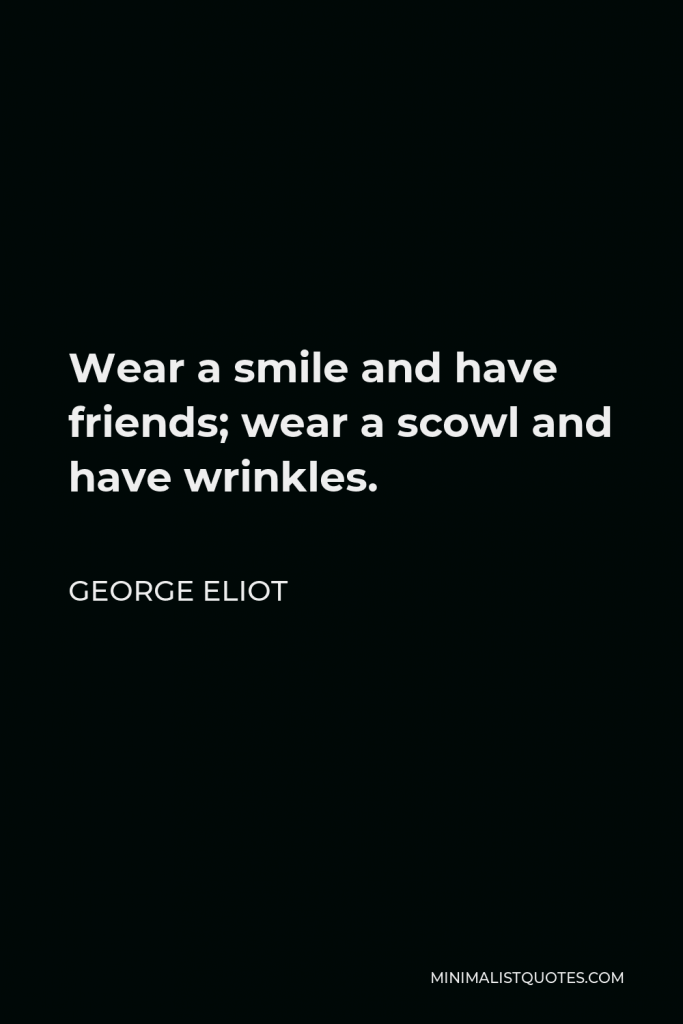

Wear a smile and have friends; wear a scowl and have wrinkles.
GEORGE ELIOT -





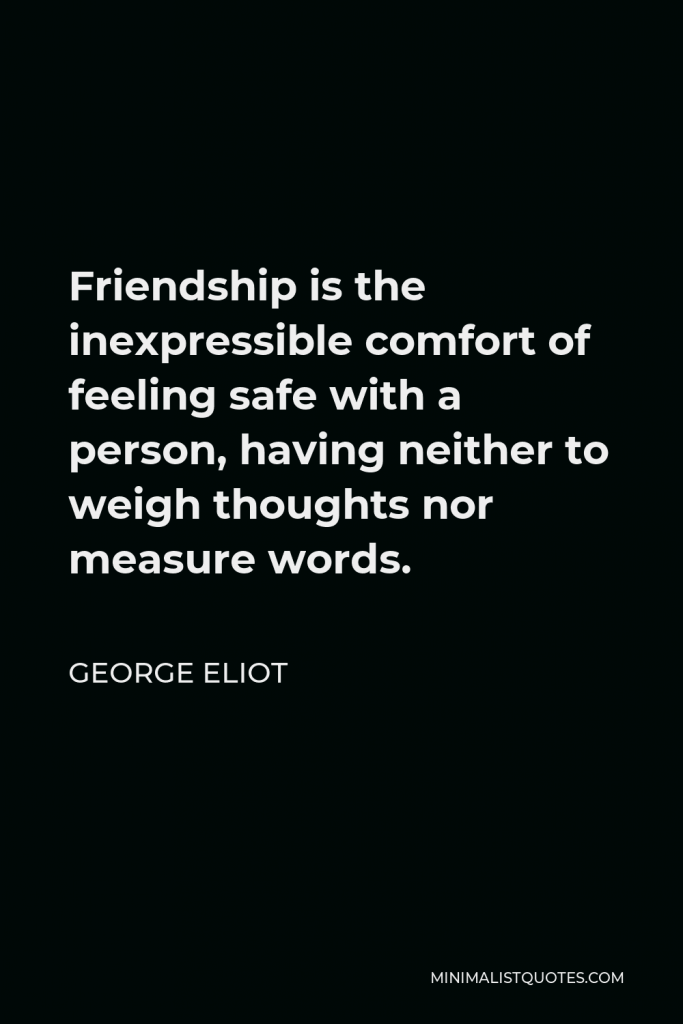

Friendship is the inexpressible comfort of feeling safe with a person, having neither to weigh thoughts nor measure words.
GEORGE ELIOT -





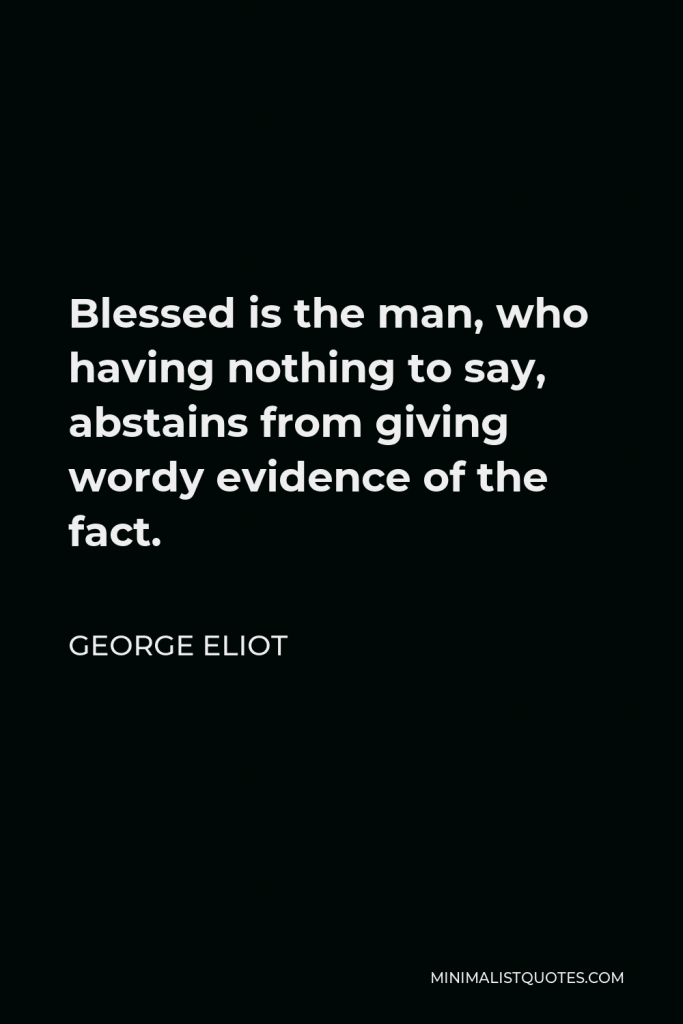

Blessed is the man, who having nothing to say, abstains from giving wordy evidence of the fact.
GEORGE ELIOT -





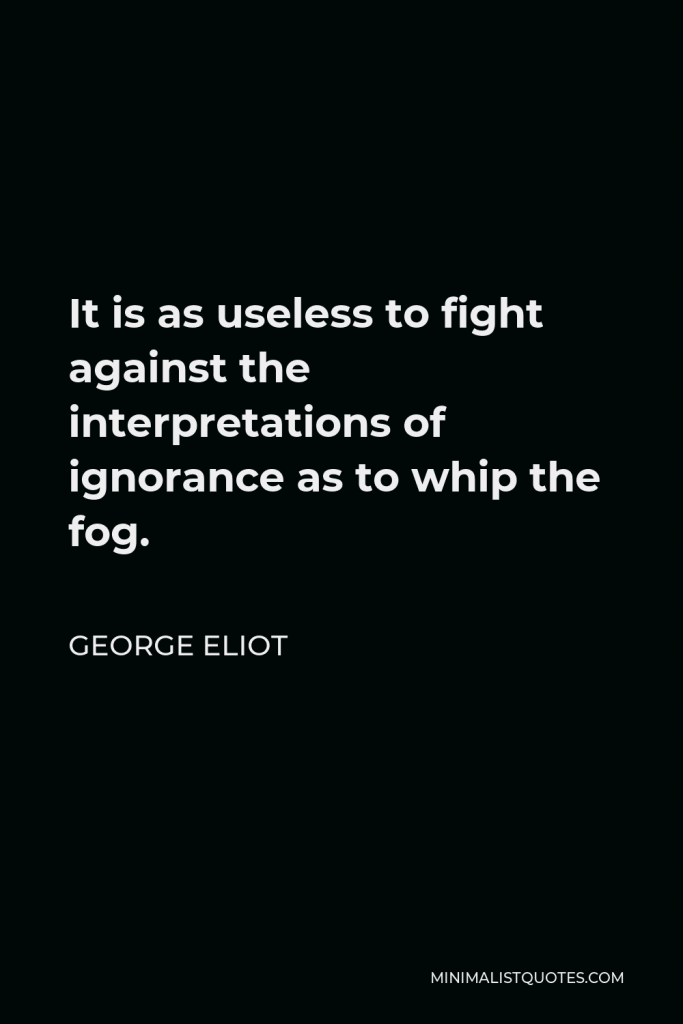

It is as useless to fight against the interpretations of ignorance as to whip the fog.
GEORGE ELIOT -





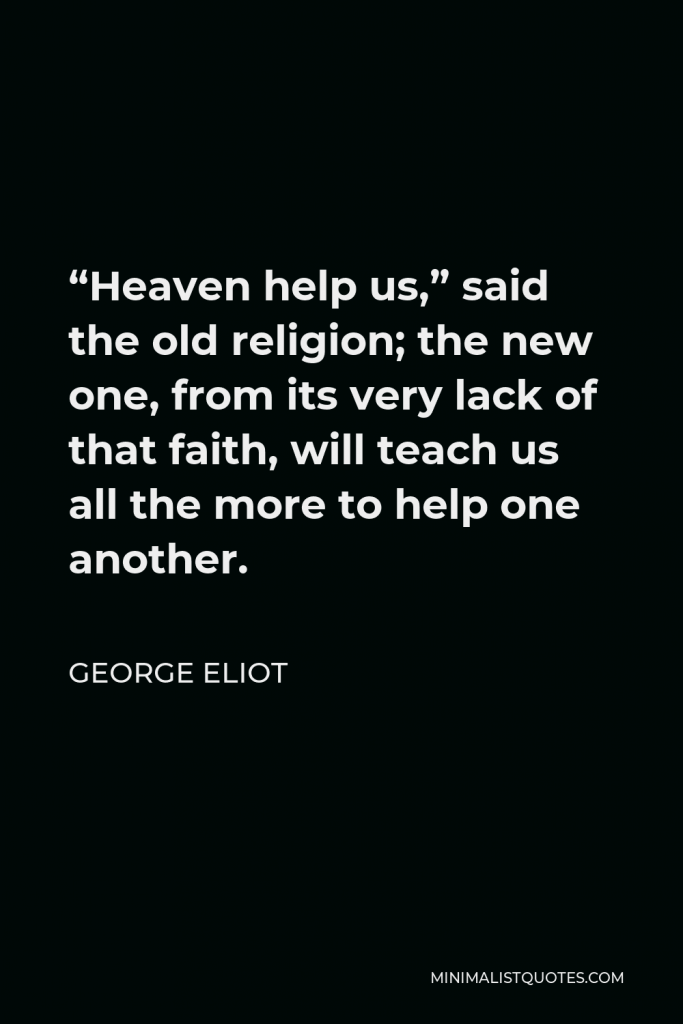

“Heaven help us,” said the old religion; the new one, from its very lack of that faith, will teach us all the more to help one another.
GEORGE ELIOT -





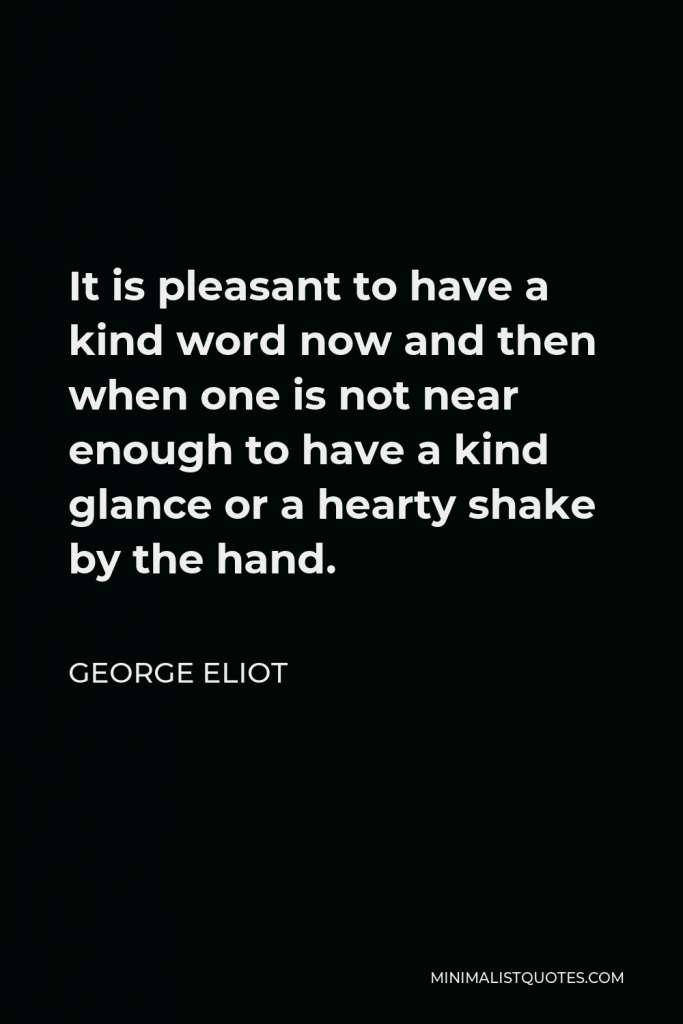

It is pleasant to have a kind word now and then when one is not near enough to have a kind glance or a hearty shake by the hand.
GEORGE ELIOT -





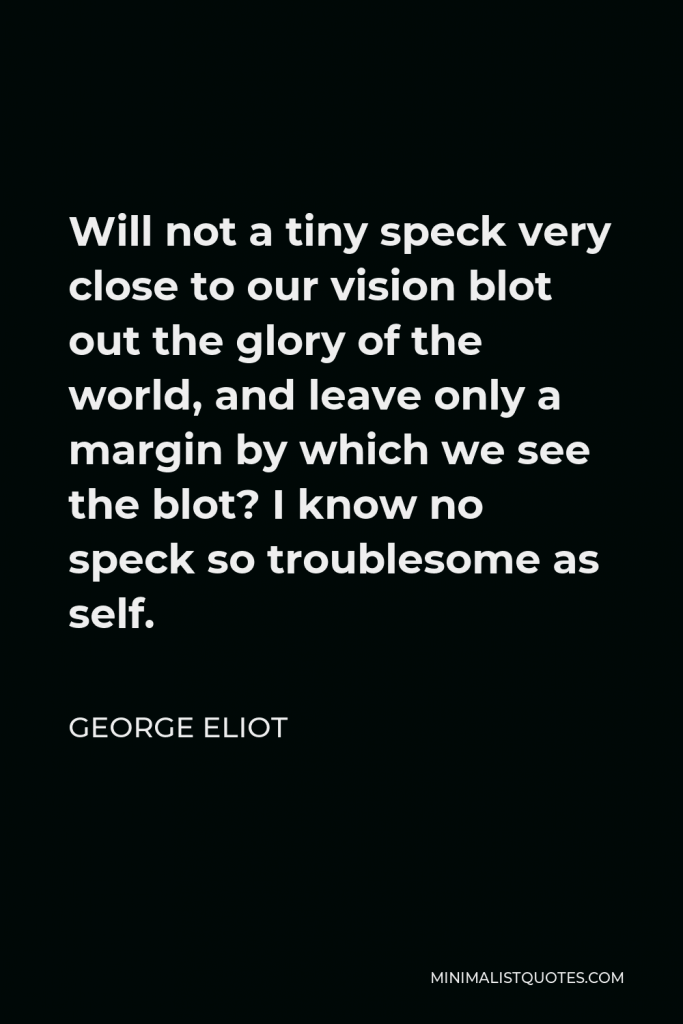

Will not a tiny speck very close to our vision blot out the glory of the world, and leave only a margin by which we see the blot? I know no speck so troublesome as self.
GEORGE ELIOT -





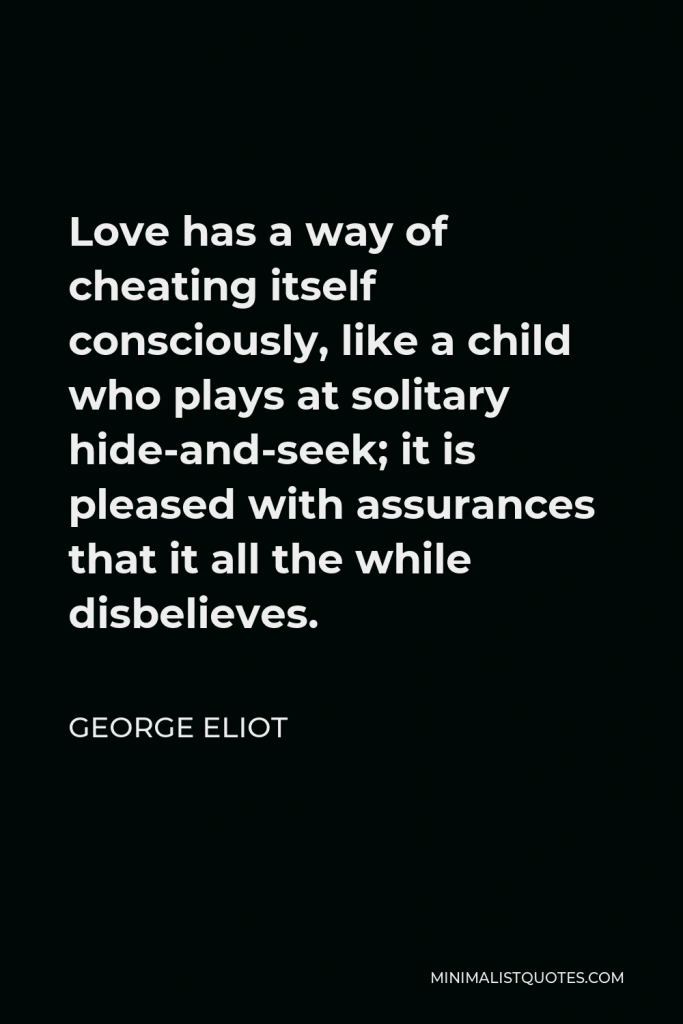

Love has a way of cheating itself consciously, like a child who plays at solitary hide-and-seek; it is pleased with assurances that it all the while disbelieves.
GEORGE ELIOT
